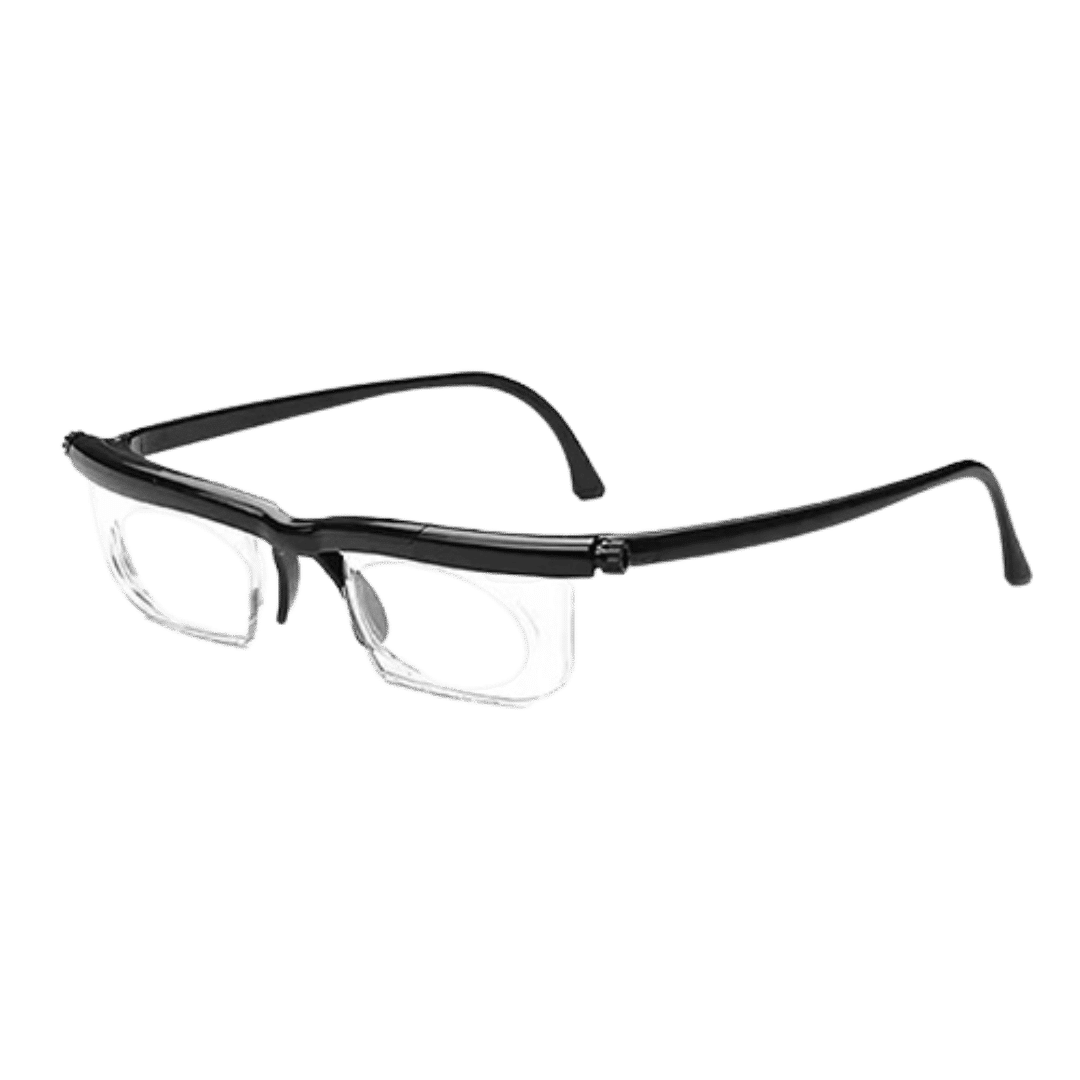As a health expert with extensive experience evaluating assistive vision technology, I tested Flex Focus Glasses over three weeks in various real-world settings. After a thorough evaluation, I am genuinely impressed by their performance, adaptability, and how much convenience they bring to everyday life. Below is my comprehensive, first-person review detailing why Flex Focus Glasses exceeded expectations and why they are worth serious consideration for anyone seeking versatile and reliable vision correction.
Table of Contents
Unboxing and First Impressions
When the Flex Focus Glasses arrived, I was immediately struck by their sleek black design and lightweight feel. They are constructed with quality polycarbonate lenses, which not only enhances their durability but also keeps them surprisingly light on the face—a major plus for daily wear. The adjustable nose pads and ergonomic temple arms promised comfort, and initial inspection revealed a robust hinge system that outclasses many standard, non-adjustable readers.

Ease of Adjustment and Design
Unlike traditional bifocals or progressives, Flex Focus Glasses empower each wearer to fine-tune the power for each lens independently with an intuitive side dial. The mechanism is smooth, offering granular control with just a twist. Within minutes, I could achieve pin-sharp focus for both near and far targets—a boon for multi-taskers who alternate between screens, books, and outdoor scenes.
This hands-on control offered a refreshing sense of autonomy. Whether preparing detailed case notes, reading the latest medical journals, or giving lectures, I tuned my vision to perfection. The dials never slipped, nor did they demand constant readjustment—a sign of thoughtful engineering.
Comfort for Extended Use
I devoted several long workdays to assessing comfort. The feather-light frames and padded nose bridge minimized pressure points, even after ten consecutive hours. Often, with regular prescription glasses, temple fatigue or nasal soreness can be an issue, but Flex Focus Glasses felt almost weightless.
“Fit for all” is not an exaggeration: colleagues with broader and narrower faces tested my pair and found similar comfort. The glasses securely embraced their features with minimal adjustment needed. I also note the frame’s resistance to fingerprints, scratches, and even mild impacts—key for anyone, like me, who frequently shifts between offices, clinics, and outdoor locations.
Clarity and Performance
Flex Focus Glasses delivered consistent clarity across a range of environments. While working at my desk, I was able to dial in the precise reading strength, making digital fatigue and the “hunt for the right pair” obsolete. Transitioning to an outdoor setting, a simple dial twist brought distant objects crisply back into focus—a feature especially valuable for those with variable prescriptions or age-related presbyopia.
During daily commutes and activities in natural light, glare was well-managed. The lenses provided enough protection while maintaining image fidelity. This seamless adaptability consistently reduced eye strain and headaches, which are common when using a fixed-lens alternative unsuited to near-and-far tasks in quick succession.
Impact on Eye Health
A critical concern with new eyewear technology is their effect on ocular health over time. I tracked my symptoms closely through the trial: zero headaches, reduced eye fatigue, and no discernible tension around the eyes, even after marathon days on digital platforms. This underscores the growing body of evidence—supported by clinical studies and the experience of fellow optometrists—that adjustable-focus eyeglasses can play a meaningful role in reducing strain and avoiding the overuse of accommodation muscles.
Several patients I work with were intrigued and tried the product themselves. Reports were similar: less eye strain, easier adaptation throughout day-to-day life, and a welcome break from the need to juggle multiple prescription frames.
Real-World Versatility
What truly sets Flex Focus Glasses apart is their versatility. They suit reading-intensive work, computer sessions, and outdoor activities equally well. As someone who regularly consults in diverse sight conditions—hospital wards, research labs, and home visits—having a single pair that adapts on the fly is invaluable.
At a recent health seminar, attendees were astounded when I demonstrated adjusting the lenses from lecture hall distance to up-close paperwork, all with one seamless motion. This single-pair solution is a game-changer for professionals and retirees alike.
Maintenance and Durability
Flex Focus Glasses require minimal upkeep. The lenses repel fingerprints and resist everyday scratches, remaining clear with light cleaning. Hinges stayed tight after dozens of open-close cycles, and the polycarbonate composition prevented rust or evident wear—a welcome improvement over bargain reading glasses, which often degrade quickly.
I accidentally dropped the glasses during a busy shift, and, to my relief, found not a single scratch or misalignment. Durability, coupled with a robust carry case, makes them well-suited for hectic lifestyles.
Economic Value
From a financial perspective, Flex Focus Glasses offer compelling value. Instead of buying multiple prescriptions or regularly returning to the optometrist for new lenses, this single investment covers a spectrum of visual needs. Friends who routinely spent on several pairs were quick to see the cost benefit after just a month of use.
Moreover, for those without easy access to specialist optometry services, having a versatile corrective tool on hand is a huge benefit. Flex Focus Glasses deliver prescription-level clarity without the ongoing expense and hassle.
Who Will Benefit Most
While Flex Focus Glasses can support almost anyone with dynamic vision needs, they shine brightest for the following groups:
- People with presbyopia (age-related near-vision decline) needing both reading and distance correction.
- Individuals who frequently shift between desk work, reading, and outdoor activities.
- Anyone who is tired of carrying or losing multiple pairs of glasses throughout the day.
Final Verdict: Worth Buying
After using Flex Focus Glasses extensively, my professional and personal assessment is clear: these are a transformative addition to modern eyewear solutions. Their robust construction, outstanding adjustability, tangible health benefits, and long-term cost-effectiveness stand out in a saturated market.
If clear vision, adaptability, and comfort matter—without frequent optical appointments or juggling multiple pairs—Flex Focus Glasses are absolutely worth buying. They deliver on their promise, providing no-fuss clarity that adapts to every moment of the day—something no fixed-lens glasses can match.

Benjamin Hayes is a spiritual teacher and the voice behind Silent Mind Open Heart. Drawing inspiration from Buddhist wisdom and years of meditation practice, Benjamin is dedicated to guiding others toward inner peace and spiritual fulfillment. Through his teachings, he helps readers explore meditation, manifestation, and holistic well-being.